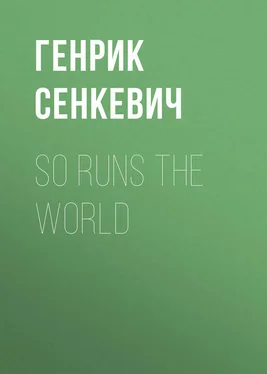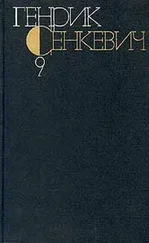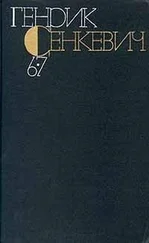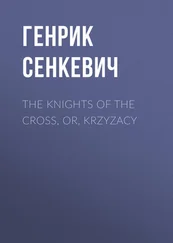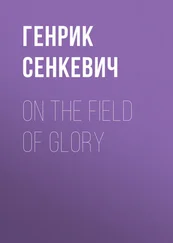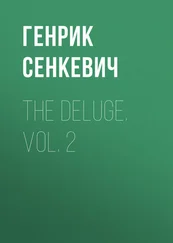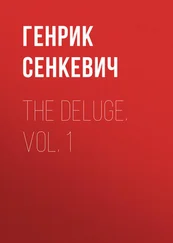Генрик Сенкевич - So Runs the World
Здесь есть возможность читать онлайн «Генрик Сенкевич - So Runs the World» — ознакомительный отрывок электронной книги совершенно бесплатно, а после прочтения отрывка купить полную версию. В некоторых случаях можно слушать аудио, скачать через торрент в формате fb2 и присутствует краткое содержание. Жанр: foreign_antique, foreign_prose, на английском языке. Описание произведения, (предисловие) а так же отзывы посетителей доступны на портале библиотеки ЛибКат.
- Название:So Runs the World
- Автор:
- Жанр:
- Год:неизвестен
- ISBN:нет данных
- Рейтинг книги:5 / 5. Голосов: 1
-
Избранное:Добавить в избранное
- Отзывы:
-
Ваша оценка:
- 100
- 1
- 2
- 3
- 4
- 5
So Runs the World: краткое содержание, описание и аннотация
Предлагаем к чтению аннотацию, описание, краткое содержание или предисловие (зависит от того, что написал сам автор книги «So Runs the World»). Если вы не нашли необходимую информацию о книге — напишите в комментариях, мы постараемся отыскать её.
So Runs the World — читать онлайн ознакомительный отрывок
Ниже представлен текст книги, разбитый по страницам. Система сохранения места последней прочитанной страницы, позволяет с удобством читать онлайн бесплатно книгу «So Runs the World», без необходимости каждый раз заново искать на чём Вы остановились. Поставьте закладку, и сможете в любой момент перейти на страницу, на которой закончили чтение.
Интервал:
Закладка:
Henryk Sienkiewicz
So Runs the World
PART FIRST
HENRYK SIENKIEWICZ
I once read a short story, in which a Slav author had all the lilies and bells in a forest bending toward each other, whispering and resounding softly the words: "Glory! Glory! Glory!" until the whole forest and then the whole world repeated the song of flowers.
Such is to-day the fate of the author of the powerful historical trilogy: "With Fire and Sword," "The Deluge" and "Pan Michael," preceded by short stories, "Lillian Morris," "Yanko the Musician," "After Bread," "Hania," "Let Us Follow Him," followed by two problem novels, "Without Dogma," and "Children of the Soil," and crowned by a masterpiece of an incomparable artistic beauty, "Quo Vadis." Eleven good books adopted from the Polish language and set into circulation are of great importance for the English-reading people – just now I am emphasizing only this – because these books are written in the most beautiful language ever written by any Polish author! Eleven books of masterly, personal, and simple prose! Eleven good books given to the circulation and received not only with admiration but with gratitude – books where there are more or less good or sincere pages, but where there is not one on which original humor, nobleness, charm, some comforting thoughts, some elevated sentiments do not shine. Some other author would perhaps have stopped after producing "Quo Vadis," without any doubt the best of Sienkiewicz's books. But Sienkiewicz looks into the future and cares more about works which he is going to write, than about those which we have already in our libraries, and he renews his talents, searching, perhaps unknowingly, for new themes and tendencies.
When one knows how to read a book, then from its pages the author's face looks out on him, a face not material, but just the same full of life. Sienkiewicz's face, looking on us from his books, is not always the same; it changes, and in his last book ("Quo Vadis") it is quite different, almost new.
There are some people who throw down a book after having read it, as one leaves a bottle after having drank the wine from it. There are others who read books with a pencil in their hands, and they mark the most striking passages. Afterward, in the hours of rest, in the moments when one needs a stimulant from within and one searches for harmony, sympathy of a thing apparently so dead and strange as a book is, they come back to the marked passages, to their own thoughts, more comprehensible since an author expressed them; to their own sentiments, stronger and more natural since they found them in somebody else's words. Because ofttimes it seems to us – the common readers – that there is no difference between our interior world and the horizon of great authors, and we flatter ourselves by believing that we are 'only less daring, less brave than are thinkers and poets, that some interior lack of courage stopped us from having formulated our impressions. And in this sentiment there is a great deal of truth. But while this expression of our thoughts seems to us to be a daring, to the others it is a need; they even do not suspect how much they are daring and new. They must, according to the words of a poet, "Spin out the love, as the silkworm spins its web." That is their capital distinction from common mortals; we recognize them by it at once; and that is the reason we put them above the common level. On the pages of their books we find not the traces of the accidental, deeper penetrating into the life or more refined feelings, but the whole harvest of thoughts, impressions, dispositions, written skilfully, because studied deeply. We also leave something on these pages. Some people dry flowers on them, the others preserve reminiscences. In every one of Sienkiewicz's volumes people will deposit a great many personal impressions, part of their souls; in every one they will find them again after many years.
There are three periods in Sienkiewicz's literary life. In the first he wrote short stories, which are masterpieces of grace and ingenuity – at least some of them. In those stories the reader will meet frequent thoughts about general problems, deep observations of life – and notwithstanding his idealism, very truthful about spiritual moods, expressed with an easy and sincere hand. Speaking about Sienkiewicz's works, no matter how small it may be, one has always the feeling that one speaks about a known, living in general memory work. Almost every one of his stories is like a stone thrown in the midst of a flock of sparrows gathering in the winter time around barns: one throw arouses at once a flock of winged reminiscences.
The other characteristics of his stories are uncommonness of his conceptions, masterly compositions, ofttimes artificial. It happens also that a story has no plot ("From the Diary of a Tutor in Pozman," "Bartek the Victor"), no action, almost no matter ("Yamyol"), but the reader is rewarded by simplicity, rural theme, humoristic pictures ("Comedy of Errors: A Sketch of American Life"), pity for the little and poor ("Yanko the Musician"), and those qualities make the reader remember his stories well. It is almost impossible to forget – under the general impressions – about his striking and standing-out figures ("The Lighthouse Keeper of Aspinwall"), about the individual impression they leave on our minds. Apparently they are commonplace, every-day people, but the author's talent puts on them an original individuality, a particular stamp, which makes one remember them forever and afterward apply them to the individuals which one meets in life. No matter how insignificant socially is the figure chosen by Sienkiewicz for his story, the great talent of the author magnifies its striking features, not seen by common people, and makes of it a masterpiece of literary art.
Although we have a popular saying: Comparaison n'est pas raison , one cannot refrain from stating here that this love for the poor, the little, and the oppressed, brought out so powerfully in Sienkiewicz's short stories, constitutes a link between him and François Coppée, who is so great a friend of the friendless and the oppressed, those who, without noise, bear the heaviest chains, the pariahs of our happy and smiling society. The only difference between the short stories of these two writers is this, that notwithstanding all the mastercraft of Coppée's work, one forgets the impressions produced by the reading of his work – while it is almost impossible to forget "The Lighthouse Keeper" looking on any lighthouse, or "Yanko the Musician" listening to a poor wandering boy playing on the street, or "Bartek the Victor" seeing soldiers of which military discipline have made machines rather than thinking beings, or "The Diary of a Tutor" contemplating the pale face of children overloaded with studies. Another difference between those two writers – the comparison is always between their short stories – is this, that while Sienkiewicz's figures and characters are universal, international – if one can use this adjective here – and can be applied to the students of any country, to the soldiers of any nation, to any wandering musician and to the light-keeper on any sea, the figures of François Coppée are mostly Parisian and could be hardly displaced from their Parisian surroundings and conditions.
Sometimes the whole short story is written for the sake of that which the French call pointe . When one has finished the reading of "Zeus's Sentence," for a moment the charming description of the evening and Athenian night is lost. And what a beautiful description it is! If the art of reading were cultivated in America as it is in France and Germany, I would not be surprised if some American Legouvé or Strakosch were to add to his répertoire such productions of prose as this humorously poetic "Zeus's Sentence," or that mystic madrigal, "Be Blessed."
Читать дальшеИнтервал:
Закладка:
Похожие книги на «So Runs the World»
Представляем Вашему вниманию похожие книги на «So Runs the World» списком для выбора. Мы отобрали схожую по названию и смыслу литературу в надежде предоставить читателям больше вариантов отыскать новые, интересные, ещё непрочитанные произведения.
Обсуждение, отзывы о книге «So Runs the World» и просто собственные мнения читателей. Оставьте ваши комментарии, напишите, что Вы думаете о произведении, его смысле или главных героях. Укажите что конкретно понравилось, а что нет, и почему Вы так считаете.
